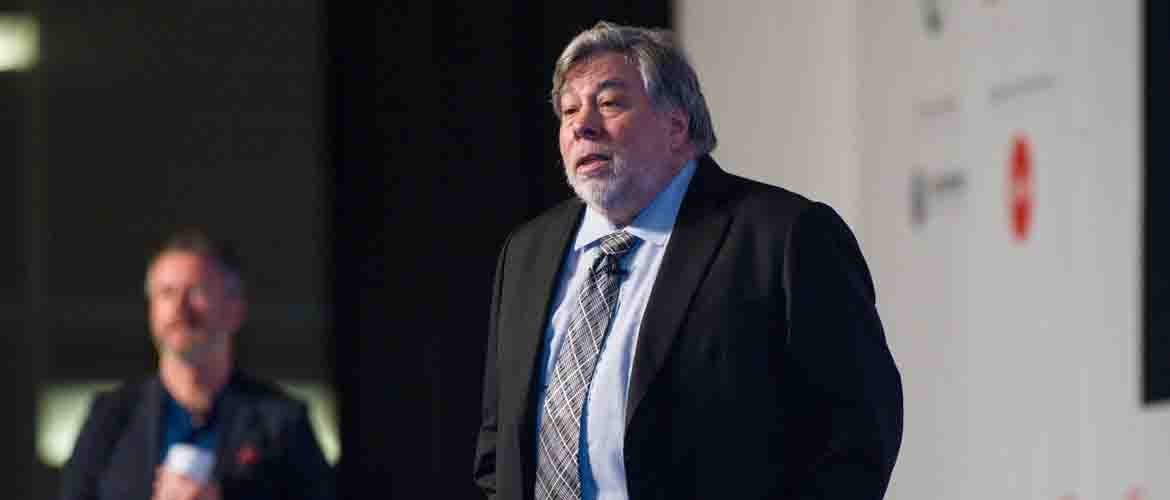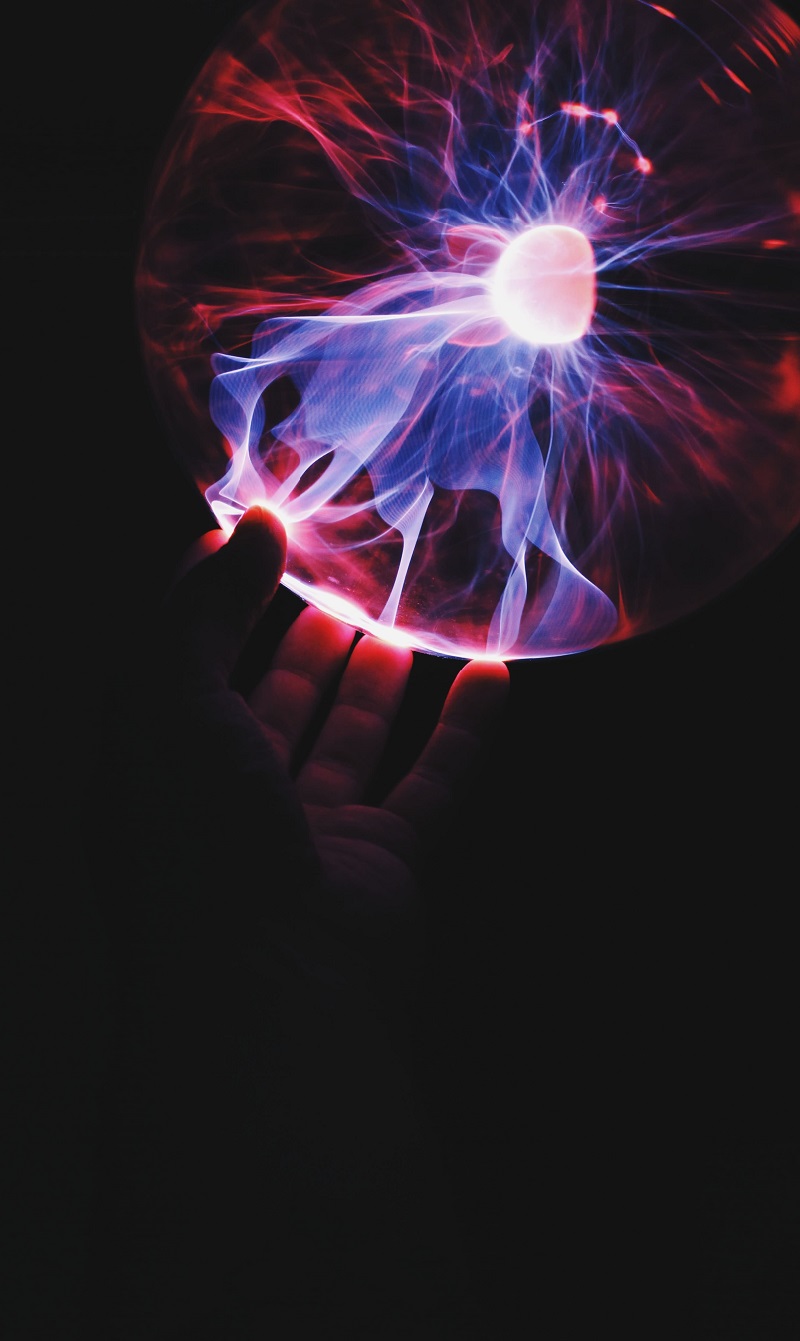Face to Face with a Disruptor
Besides singlehandedly building the Apple computer that disrupted the world, Steve Wozniak has an interesting advice on how companies can deal with disruptive change and he divulged it, among other things, during the 13th WIEF in Kuching, Sarawak. This article was first published in the second issue of WIEF In Focus magazine.
The bright tropical weather in Kuching, Sarawak, on 21 November 2017, matched the energy that permeated the hall during Steve Wozniak’s Face to Face session at the 13th WIEF. Speaking to a hall of around 3,000 people, the sole creator of Apple I revealed how his initial idea for a mini computer was rejected time and again by the likes of IBM as well as Hewlett Packard, the company where he worked at the time (they must have kicked themselves for not taking on the idea once it got off the ground).
However, in this context, rejection turned out to be a great thing for him, as well as the late Steve Jobs. It’s because Apple I launched Apple during the mid-1970s and forever immortalised Steve Wozniak as one of the world’s initial disruptor. This made him an apt choice as speaker for the 13th WIEF with its theme of Disruptive Change: Impact and Challenges.
‘[Being a disruptor] does have a very serious real-life connotation to it,’ he said during the session. ‘Kind of like existentialism and that’s how I think of disruption. My idea is that big companies should fear being disrupted. They should be very wary and conscious of what might come along and disrupt them.’ Steve proposed companies employ an officer who don’t report to the CEO of a company, a chief disruption officer (CDO).
A chief disruption officer, according to Steve, should report to the board of directors and have a small staff to study all sorts of new developments. ‘The team of staff should range from scientist to chemist who can discover new materials or biotech researchers that may be able to use DNA to store data, for instance,’ he advised. He believed, if companies paid attention to what could be discovered by a CDO-led team, they could then figure out scenarios of how that might disrupt their business in the future and be ready for it. ‘Eventually maybe hit on ideas, oh my gosh, this is one that might disrupt all our competitors too,’ he added.
The 1.5-hour session at the 13th WIEF, showcased a disruptor who was well-versed in his field of innovation but consciously oblivious to current technological jargons and, unexpectedly, the Fourth Industrial Revolution.
What is the Why of Anything Steve Created?
‘A lot of the greatest products in my life [happened] because they weren’t designed for a mass buying public. They were designed to be the right product for one person with good sensibilities about simplicity, elegance and appearance,’ Steve explained. Tesla, according to him, was a good example of that. ‘Why would anyone build a large electric car? [It’s because] Elon Musk had a large family. He needed a large car and wanted all electric,’ he said.
‘See how it came from his own personal life? Look at the iPhone. Steve Jobs sat there and every little feature on the iPhone had to be approved by one person. It’s right for me, it feels good, it feels right,’ he recalled. ‘[Steve] wouldn’t let it get out of control with everything every engineer in the world wants to put in. I mean, it’s much more complicated now then it was then but it’s still a much simpler approach to life than what we’d have had without it.’
Steve’s Thoughts on Technology Today?
‘Well, self-learning machines are possible, in science fiction we get to it,’ Steve replied. ‘In reality, we have no evidence yet that says we will get there because we don’t know how the brain does it. We don’t know how the brain is structured. As much as we talk about basically sensing the brain, putting probes in it that can detect that a neuron gets excited at a certain picture we see, doesn’t mean that neuron is a memory. It just means it’s in the processing step but we all get to think, “oh, now we know where memories are”. We don’t even know where memories are in the human brain.’
An unbeliever when it came to machines that could think and programme itself, Steve declared it to be just a theory. ‘That’s just a theory that when we get to singularity it really could do that. And I tend to not believe it,’ he asserted. He believed that the Internet of Things would not make our lives significantly more productive and would prefer if the internet is for free.
‘If I had universities, I’d just emphasise the education for anyone who has the ability to learn it – you know, the mathematical programming types – to learn how blockchain works, how to adapt it and how to apply it to many different things. It’s going to be one of the big things that change the world, in my mind,’ Steve anticipated. He advised for people to pay more attention, be interested and read on the development of blockchain and its potential.
Steve also anticipated that eventually all payment systems will be mobile. ‘This is too far-fetched. It’s really far-fetched. But I still predict it, I feel it, I want it. One of the reasons I want it is because it’ll simplify my life in many ways.’
When it came to the myriad realities created using technology such as virtual reality, augmented reality and mixed reality, Steve believed, ‘They really aren’t part of very many of our lives. We’ve experienced it, some of us, a few times.’ However, he believed, their application could mainly be for gaming and training.
Apple After [the other] Steve?
‘It was two years, during a timeframe, Steve Jobs had died and the world was saying Apple will not be innovative without him,’ Steve recalled. ‘And Apple came up with a touch identification system that reads your fingerprint reliably, enough to be your identification. Soon as Apple did it, all the other phone makers had to come in with their versions of it. The touch system allowed Apple Pay. You walk up to a store’s counter, put out your phone, just hold out your finger to identify yourself and it’s done. It’s so simple.’
‘Once you do something, you realise you don’t want to ever go back. It’s like I have an electric car now. I plug it in my garage, I don’t want to ever go to a gas station ever again in my life. I’ve gone through a one- way door. Once things get that nice and easy to use, you just don’t want to go back. And those are usually the things that eventually the world gets to,’ Steve said.
Why Should You Continue to Think Differently?
‘You absolutely should because sometimes your way winds up winning for different reasons. Maybe you already control a bigger market or maybe your idea is better, or easier. Look at Tesla, they really made this electric car that can go anywhere. But wouldn’t Tesla want every other company trying to make electric cars to be successful? Let the whole market grow and then you fight for your part of it by doing good work. But you don’t want to hold a market back by being the only one there,’ Steve concluded.
___________________
For more on the latest topics related to business, technology, finance and more, read our digital versions of In Focus magazine, issue 1, issue 2 and issue 3.





